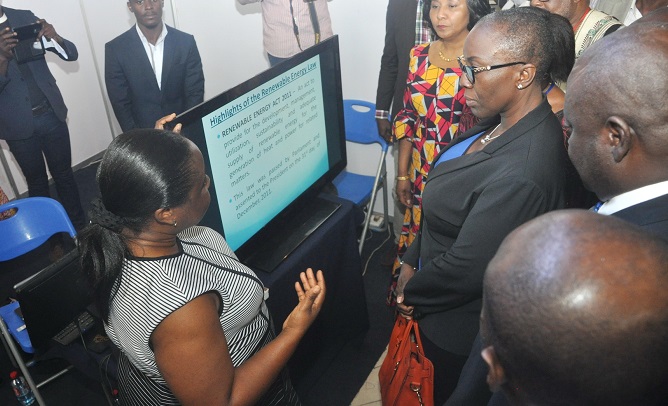
Govt scales up construction of mini-grids to provide electricity to island communities
The government is scaling up the construction of mini-grids to provide electricity to over 200 islands and 2,000 lakeside communities in the medium term.
These are in addition to the mini-grid facilities by the World Bank to provide electricity to 10,000 populations on five island communities on the Volta Lake.
The Finance Minister, Mr Seth Terkper, who made this known in a speech read on his behalf by his deputy, Mrs Mona Quartey, at the opening of the second Ghana Renewable Energy Fair, said the Swiss Government was also supporting the government to construct three additional mini-grid facilities for the rest of the island communities in the Ada East District in the Greater Accra Region.
Renewable Energy Fair
The three-day fair is being attended by about 42 public and private institutions in the renewable energy sector.
It is on the theme: “Renewable energy and energy efficiency: Accelerating energy access and security.”
Mainstreaming
Mr Seth Terkper announced that the government had taken a major policy decision to mainstream mini-grids into the National Electrification Scheme.
“As a result, such communities would enjoy the same electrification packages offered their counterparts in grid-connected communities,” he explained, adding that investment in the mini-grid sector would be public sector-led with the private sector providing essential services such as engineering procurement and construction.
Renewable energy investment plan
Mr Terkper announced the approval of a $320 million scaling-up renewable energy investment plan (SREP-IP) by the Climate Investment Fund for Ghana.
“The SREP-IP is currently being considered by the government for implementation,” he said, adding that the Ministry of Power would leverage additional financing to achieve flagship investments in the renewable energy sector under the SREP programme.
He added that significant progress had been made towards the realisating development of wind and biomass power plants.
Information gap
The Chairman of the Energy Commission, Dr Kwame Ampofo, explained that the fair was born out of the need to bridge the information gap that existed between the industry and the desired market.
He said the commission had launched the national rooftop solar programme, under which free solar panels up to a maximum capacity of 500 watts peak were provided to qualified beneficiaries in the residential sector.
“The aim of this programme is to take the residential lighting load off the national grid with the use of solar PV technology,” he stated.
The Deputy Minister of Environment, Science, Technology and Innovation, Dr Bernice Heloo, said the development of the renewable energy and energy deficiency subsector was being taken seriously.
“This is because it is one of the demand areas in combating climate change, reducing environmental degradation and ensuring greenhouse reduction,” she explained.
